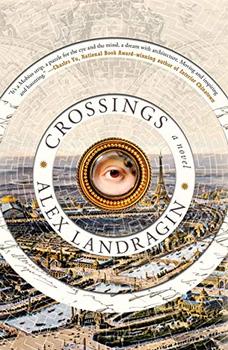Summary | Excerpt | Reading Guide | Reviews | Beyond the book | Read-Alikes | Genres & Themes | Author Bio

Set in three cities in three eras, The Mirror Thief calls to mind David Mitchell and Umberto Eco in its mix of entertainment and literary bravado.
The core story is set in Venice in the sixteenth century, when the famed makers of Venetian glass were perfecting one of the old world's most wondrous inventions: the mirror. An object of glittering yet fearful fascination - was it reflecting simple reality, or something more spiritually revealing - the Venetian mirrors were state of the art technology, and subject to industrial espionage by desirous sultans and royals world-wide. But for any of the development team to leave the island was a crime punishable by death. One man, however - a world-weary war hero with nothing to lose - has a scheme he thinks will allow him to outwit the city's terrifying enforcers of the edict, the ominous Council of Ten ...
Meanwhile, in two other Venices - Venice Beach, California, circa 1958, and the Venice casino in Las Vegas, circa today - two other schemers launch similarly dangerous plans to get away with a secret ....
All three stories will weave together into a spell-binding tour-de-force that is impossible to put down - an old-fashioned, stay-up-all-night novel that, in the end, returns the reader to a stunning conclusion in the original Venice ... and the bedazzled sense of having read a truly original and thrilling work of art.
All three narratives have dark themes and scenes of a violent and or sexual nature, which may not appeal to all readers. The story is complex and at times hard to parse... For those happy to enjoy the ride, however, there is much to enjoy here: a twisting mystery, rich language, metaphysical discourse and allusions and references to medieval texts, philosophy and poetry galore. Seay is clearly a talented and knowledgeable writer who has written a transporting and original novel...continued
Full Review
 (551 words)
(551 words)
(Reviewed by Kate Braithwaite).
The history of Venice begins with the end of the Roman Empire at around 400 A.D. As Roman rule collapsed across Europe groups of Huns, Barbarians and Goths disrupted communities, and on the north-eastern shore of the Adriatic Sea people sought safety from Attila the Hun in the shallow islands of the Venetian Lagoon. With two or three miles of water separating them from mainland Italy, early Venetian settlers were safe from enemies who had no knowledge of seafaring. By 726 A.D. these resourceful people had elected their first doge (duke). Successive doges ruled Venice for the next 1000 years.
In the centuries that followed, Venice became a center for trade, architecture and artistry. Exploiting the seafaring skills of its inhabitants, ...

If you liked The Mirror Thief, try these:

by Leigh Bardugo
Published 2025
From the #1 New York Times bestselling author Leigh Bardugo comes a spellbinding novel set in the Spanish Golden Age.

by Alex Landragin
Published 2021
Alex Landragin's Crossings is an unforgettable and explosive genre-bending debut--a novel in three parts, designed to be read in two different directions, spanning a hundred and fifty years and seven lifetimes.
I always find it more difficult to say the things I mean than the things I don't.
Click Here to find out who said this, as well as discovering other famous literary quotes!